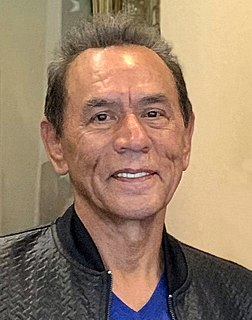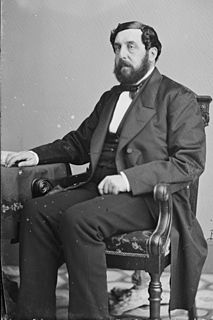A Quote by Elizabeth Cady Stanton
Nothing adds such dignity to character as the recognition of one's self- sovereignty.
Quote Topics
Related Quotes
Nothing strengthens the judgment and quickens the conscience like individual responsibility. Nothing adds such dignity to character as the recognition of one's self-sovereignty; the right to an equal place, everywhere conceded--a place earned by personal merit, not an artificial attainment by inheritance, wealth, family and position.
Nothing is a surprise to God; nothing is a setback to His plans; nothing can thwart His purposes; and nothing is beyond His control. His sovereignty is absolute. Everything that happens is uniquely ordained by God. Sovereignty is a weighty thing to ascribe to the nature and character of God. Yet if He were not sovereign, He would not be God. The Bible is clear that God is in control of everything that happens.
Self-Control is the very essence of character. To be able to look a man straight in the eye, calmly and deliberately, without the slightest ruffle of temper under extreme provocation, gives a sense of power which nothing else can give. To feel that you are always, not sometimes, master of yourself, gives a dignity and strength to character, buttresses it, supports it on every side, as nothing else can. This is the culmination of thought mastery.
...the kingdom of God is that invisible collection of committed Christians that transcends cultures, ideologies... and creeds- all bound by the golden commitment to say nothing and do nothing that would attack the self-esteem, the self-respect, and the dignity of any other human being, whether or not they are committed members of the kingdom of God. The dignity of the person then is the irreducible cell of true Christianity.
In
the creation of the federal government, the states exercised the
highest act of sovereignty, and they may, if they please, repeat the
proof of their sovereignty, by its annihilation. But the union possesses
no innate sovereignty, like the states; it was not self-constitute d; it
is conventional, and of course subordinate to the sovereignties by
which it was formed.
It is a work of psychogeography, albeit in a less explicit sense than Iain Sinclair's or Will Self's. It had to be fiction though, because I needed that freedom of including whatever belonged, and cutting out whatever didn't. The main fiction in it was matching Julius' generous and self-concealing character to New York's generous and self-concealing character. I think this also adds to my answer about New York's personality in the book.
It is superfluous to try by the standards of theory, a part of the constitution which is allowed on all hands to be the result not of theory, but "of a spirit of amity, and that mutual deference and concession which the peculiarity of our political situation rendered indispensable" . . . the equal vote allowed to each state, is at once a constitutional recognition of the portion of sovereignty remaining in the individual states, and an instrument for preserving that residuary sovereignty.
There is no attribute of God more comforting to His children than the doctrine of Divine Sovereignty. Under the most adverse circumstances, in the most severe troubles, they believe that Sovereignty hath ordained their afflictions, that Sovereignty overrules them, and that Sovereignty will sanctify them all.





































